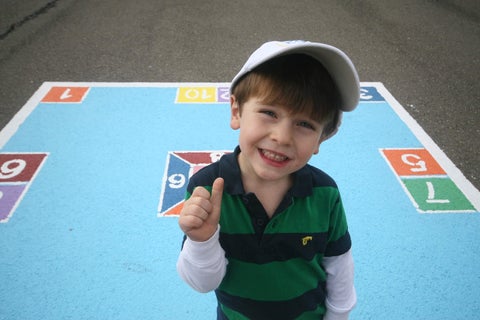Redefining Recess: The Social-Emotional Benefits of Recess
Redefining Recess: The Social-Emotional Benefits of Recess

There’s been a lot of hubbub in recent years about the importance of social-emotional learning in the classroom. But, unfortunately, it isn’t always clear what social-emotional learning actually is. This can be troubling in a time when our kids are more stressed-out than ever before, worked harder than ever before, especially when we need to define the problems we’re facing before we can make plans to confront them.
So because we don’t like to be vague over here at the Fit and Fun Blog, it’s important we define social-emotional learning before we explain why it’s so important for kids to have it implemented into their curriculums.
What Is Social-Emotional Learning?
CASEL (The Collaborative for Academic, Social and Emotional Learning) defines social-emotional learning (also called SEL) as “the process through which children and adults acquire and effectively apply the knowledge, attitudes, and skills necessary to understand and manage emotions, set and achieve positive goals, feel and show empathy for others, establish and maintain positive relationships, and make responsible decisions.”
In other words, social-emotional learning can be defined as the process through which children learn how to become active, socially conscious members of a given society.
Why Is It Important?
With this definition in mind, it’s a bit easier to see why social-emotional learning is so important (and why it’s so practical) for kids to practice in school. And, in particular, why recess is the best place for this important skill to be practiced rather than in the classroom.
Consider how the playground is a place where many kids first learn how to engage in social behaviors with other students beyond the eyes of guardians or shelterers. They talk, play, negotiate, form friendships. I, for example, first learned how to play baseball with a wiffleball bat and tennis ball on my elementary school playground in the first grade.
But social skills, like any skill (notice the repeating word skill) requires frequent honing to maintain and improve, just like any academic skill. If the skill isn’t practiced, the skill doesn’t remain static: instead it degrades, to the detriment of the student.
While social interaction is an important part of school, it isn’t always thought of as a skill that can be taught in the same way as writing or reading or math. This, like many previous ideas of achievement in school, is beginning to change. Schools across the country have begun to implement social-emotional programs into their curriculums, often eliciting positive changes as a whole.
The Social-Emotional Benefits of Recess
According to a 2013 policy statement from the American Academy of Pediatrics, “Recess promotes social and emotional learning and development for children by offering them a time to engage in peer interactions in which they practice and role play essential social skills. This type of activity, under adult supervision, extends teaching in the classroom to augment the school’s social climate. Through play at recess, children learn valuable communication skills, including negotiation, cooperation, sharing, and problem-solving as well as coping skills, such as perseverance and self-control.”
In other words, recess allows children to interact with one another--a staple of social-emotional learning--which becomes a valuable part of their overall social development. Without the social interaction kids experience predominantly on the playground, our children run the risk of missing out on important social skills considered essential in our highly integrated modern society.
Either structured or unstructured daily recess can help make sure these important social-emotional skills are learned.



Leave a comment